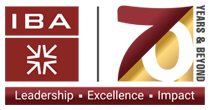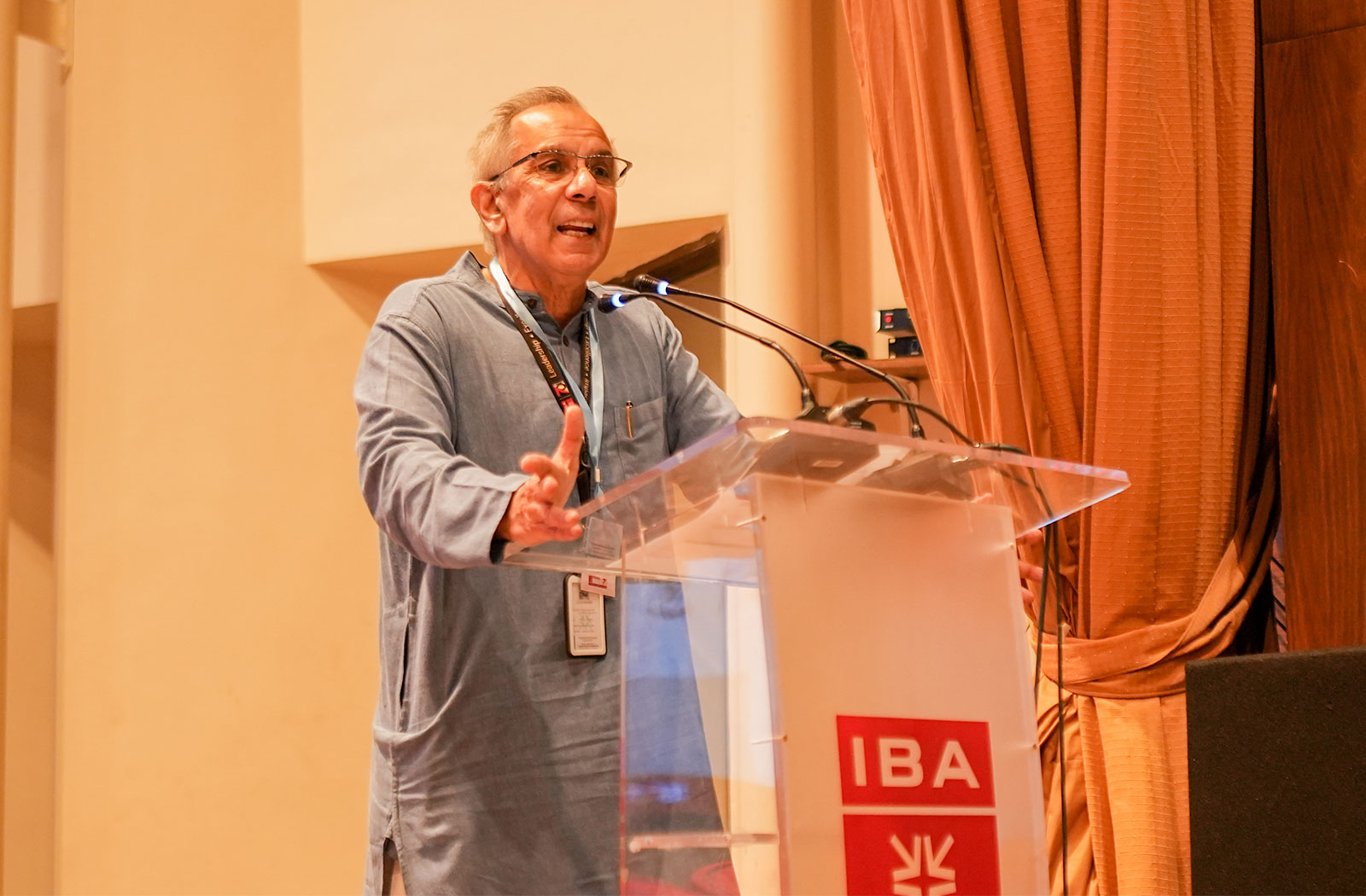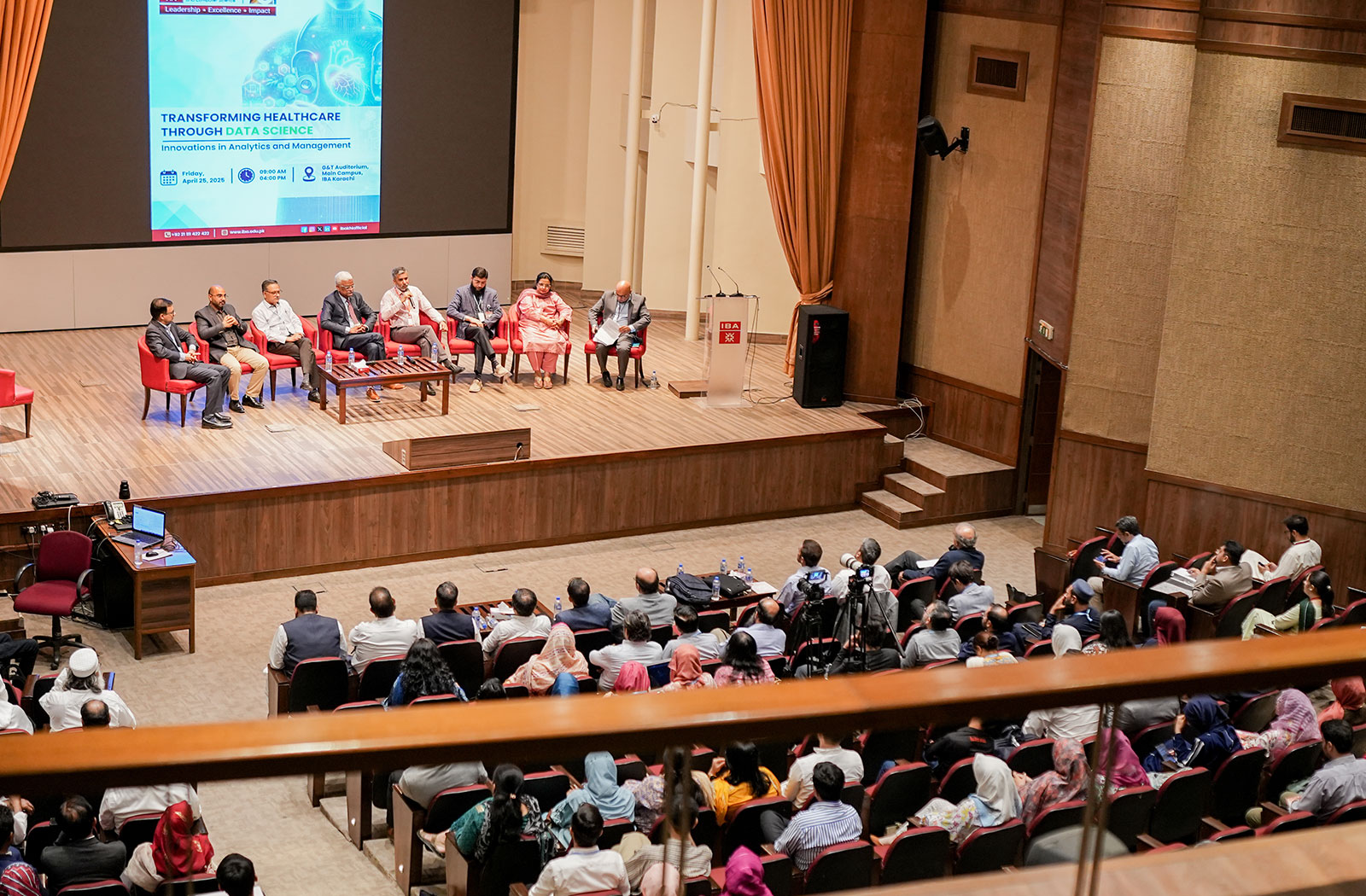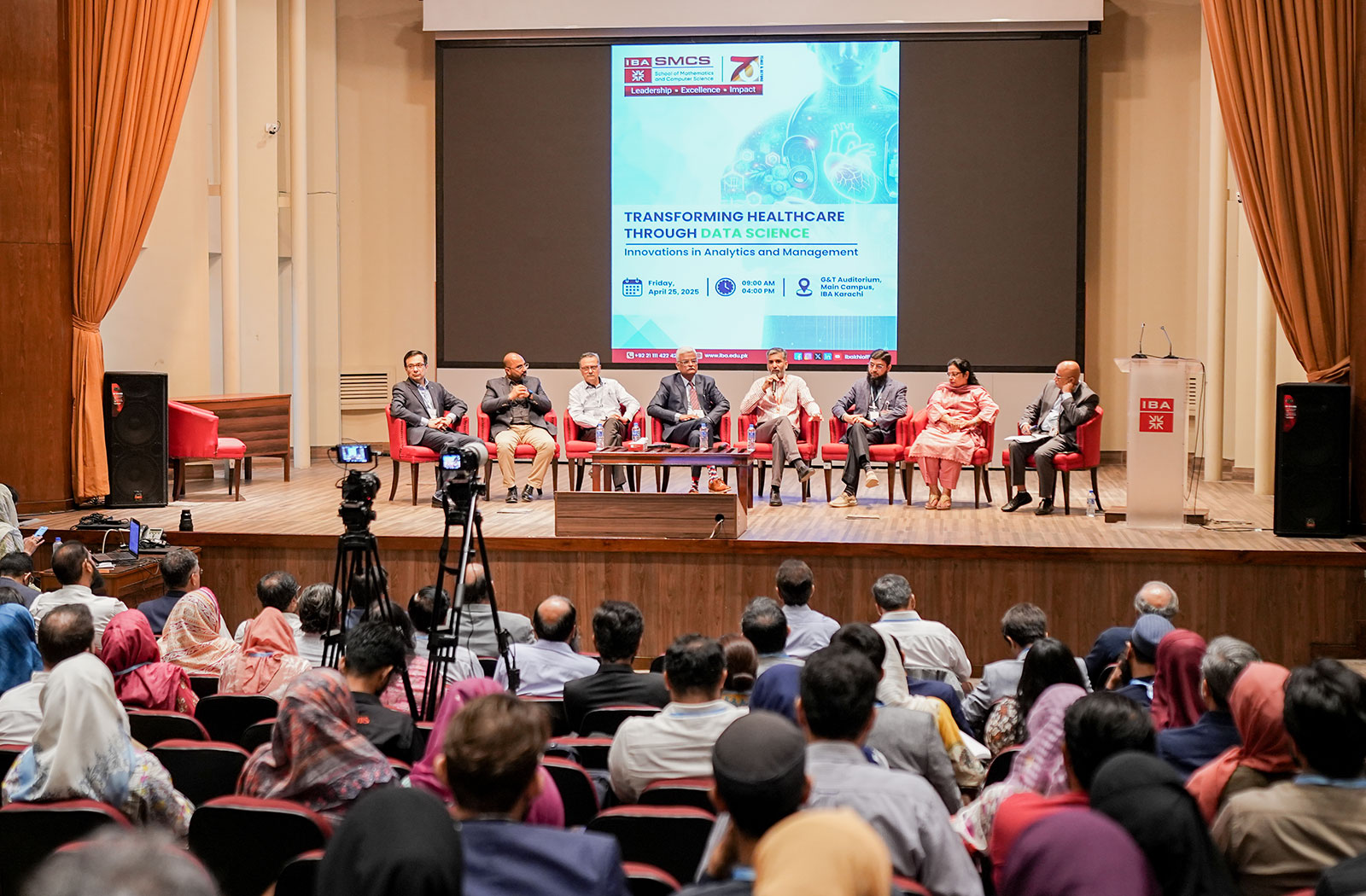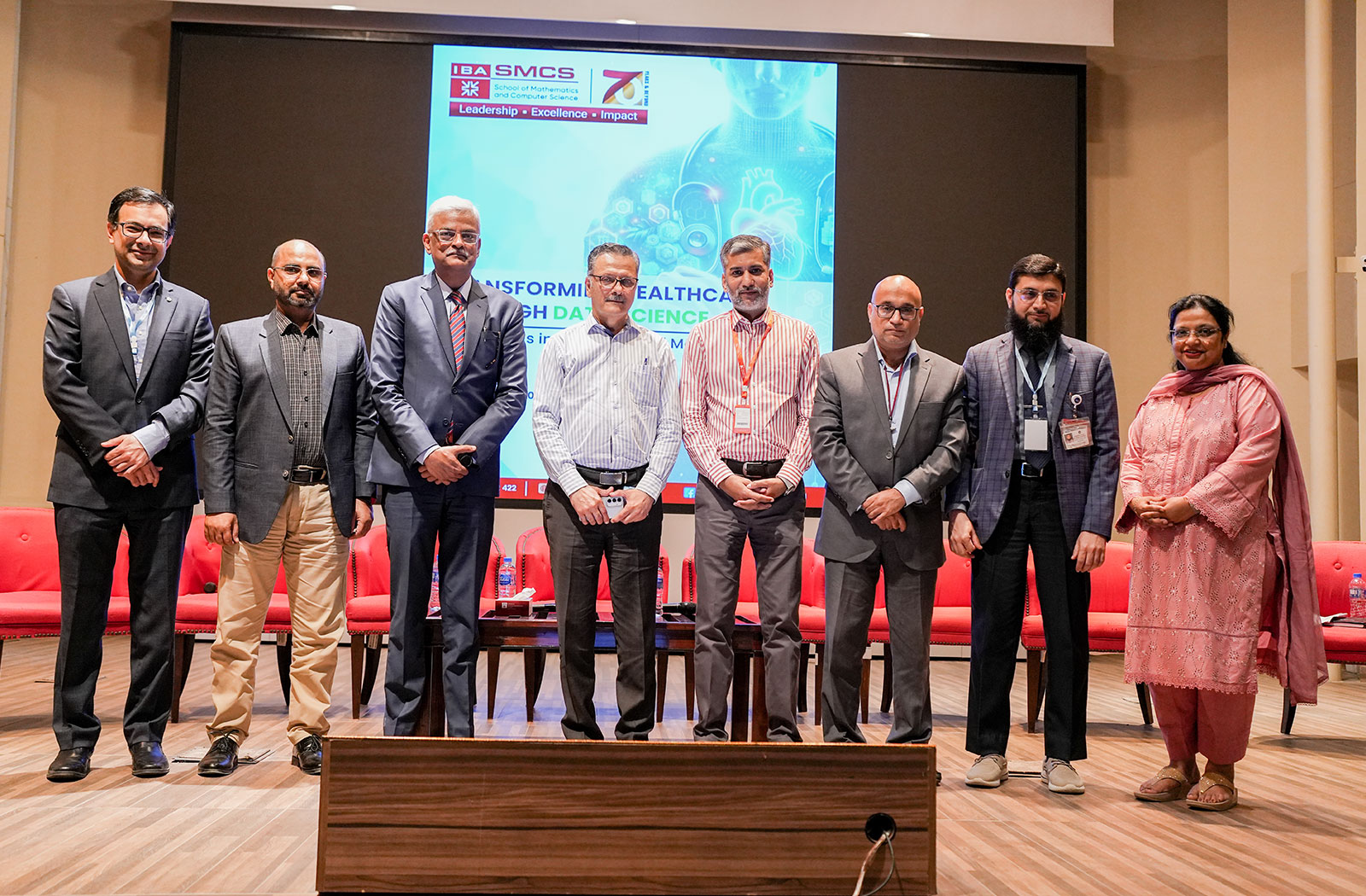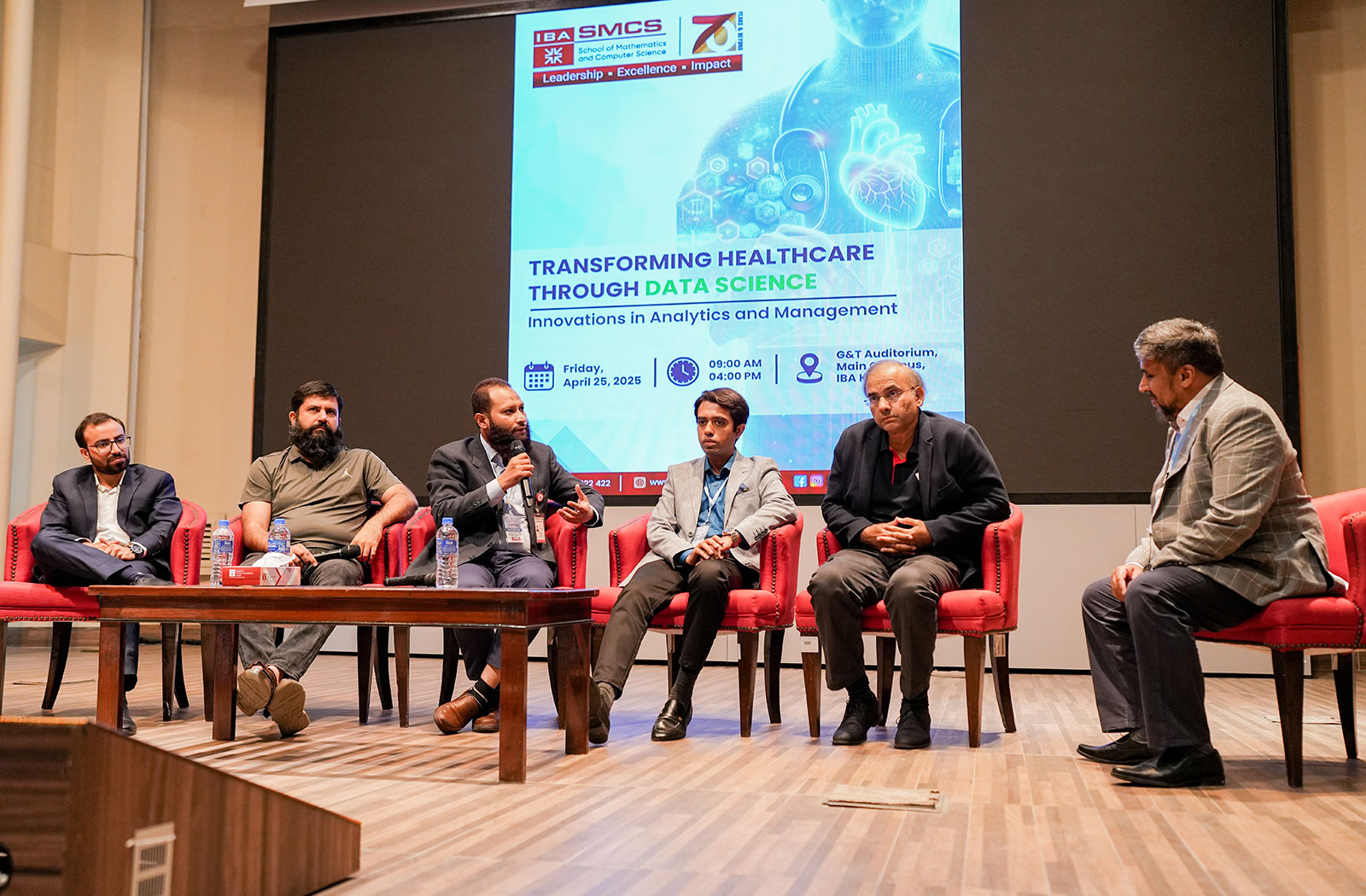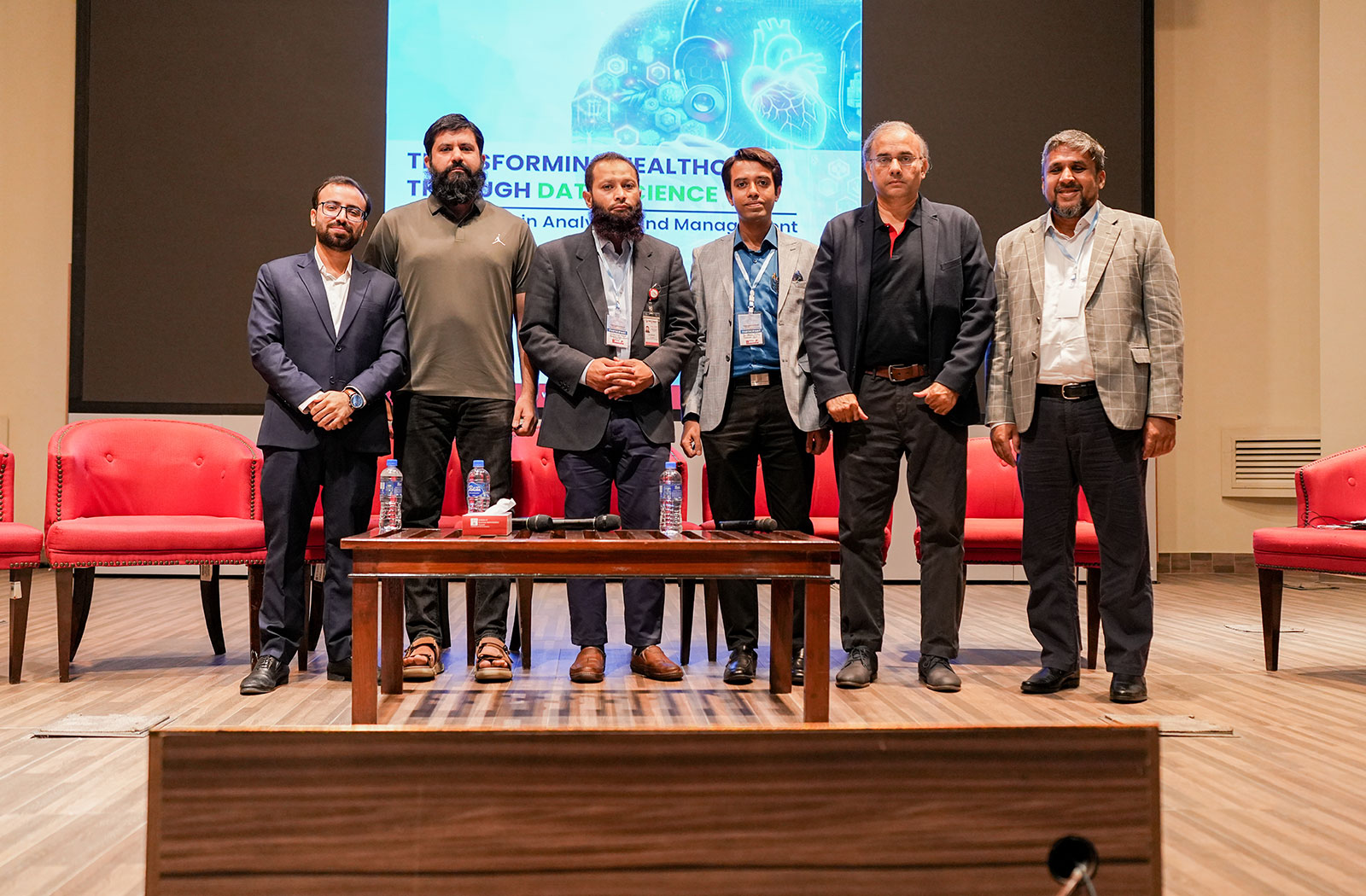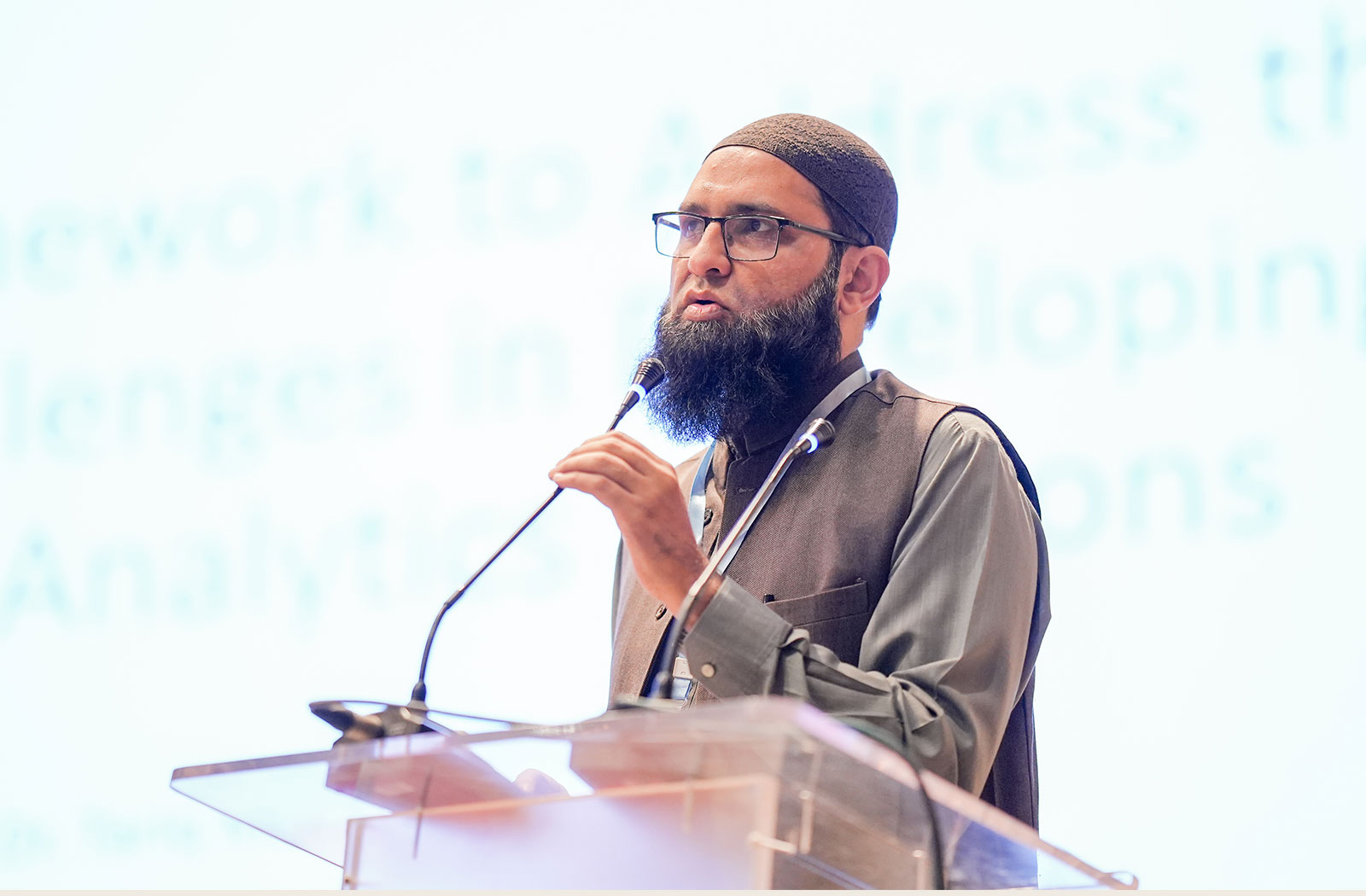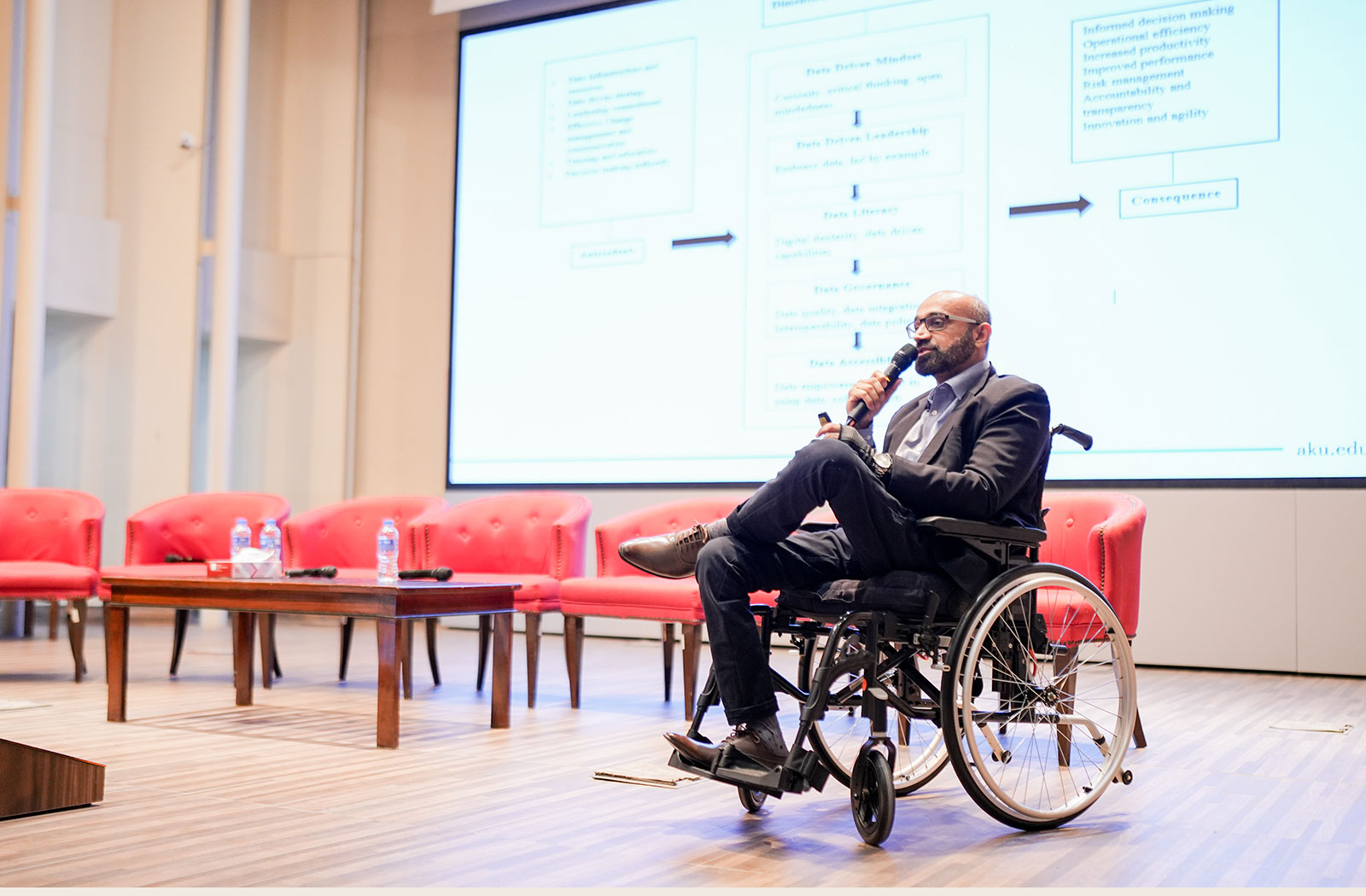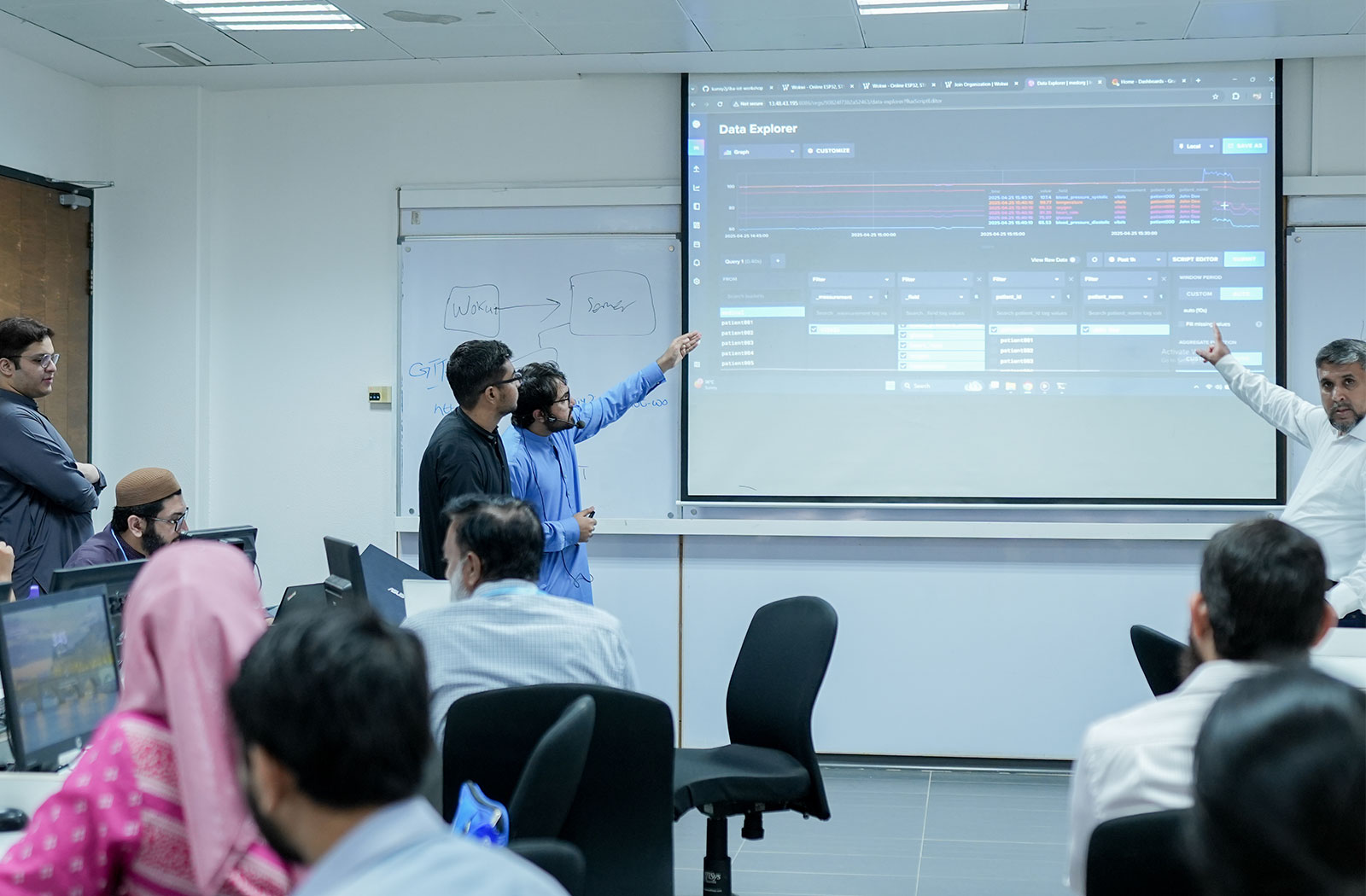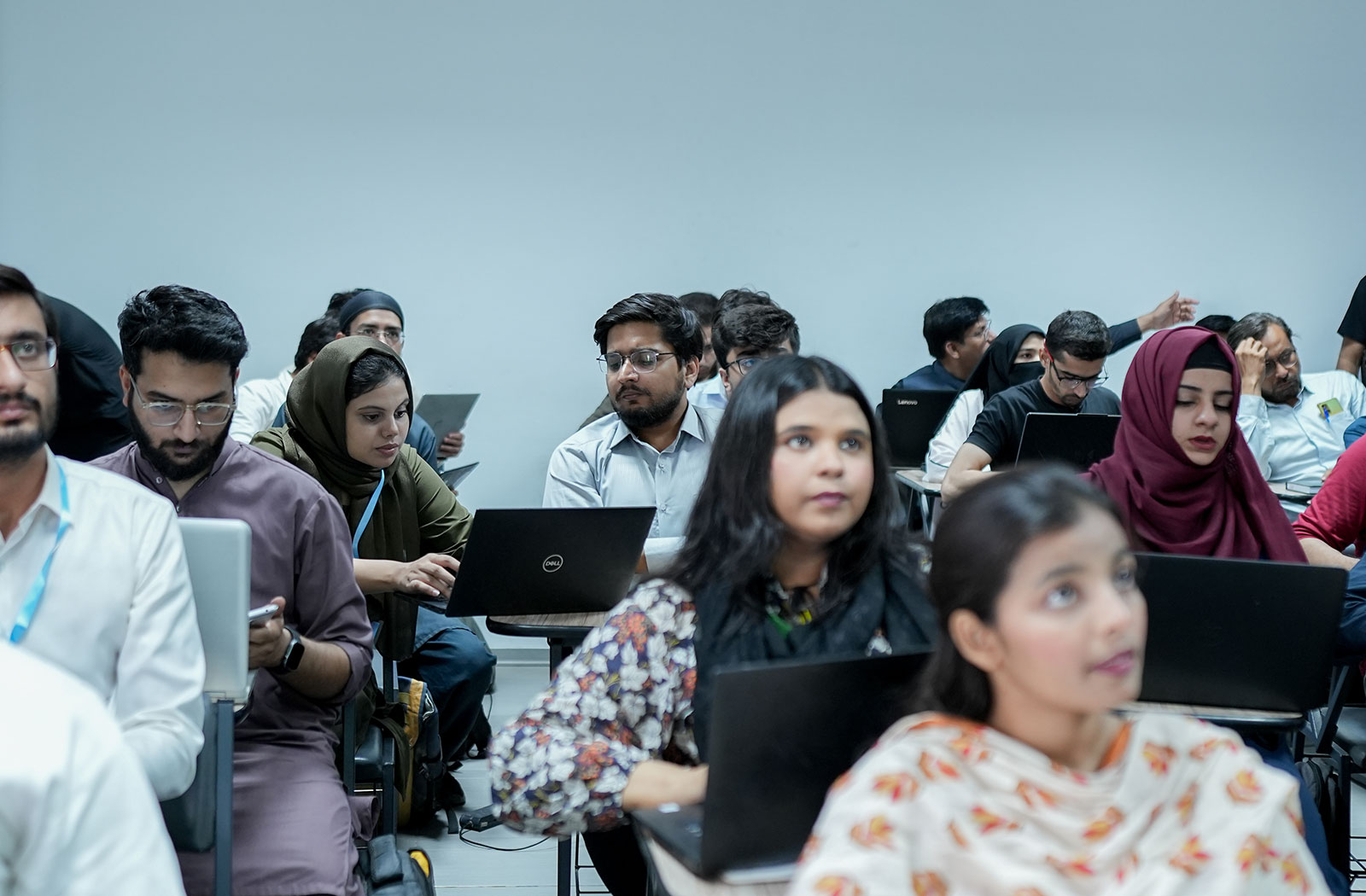Transforming Healthcare Through Data Science: A Glimpse into the Future of Healthcare Innovation at IBA Karachi
On April 25, 2025, the Institute of Business Administration (IBA) Karachi opened its doors to a vibrant community of over 300 participants for the "Transforming Healthcare Through Data Science" Symposium. The event, a pioneering convergence of healthcare professionals, data scientists, and AI innovators, unfolded as a testament to the power of interdisciplinary collaboration in addressing some of the most pressing challenges in healthcare today. With healthcare systems increasingly under strain, this symposium offered a compelling glimpse into a future where data-driven solutions will reshape the way we approach patient care, diagnosis, and treatment.
The day’s proceedings began with a powerful commencement speech by Dr. Akbar Zaidi, Executive Director of IBA Karachi, and Dr. Sajjad Haider, Professor of Computer Science at the School of Mathematics and Computer Science (SMCS). Their remarks set the tone for a day filled with insightful discussions and practical knowledge, emphasizing the urgent need for integrating data science into Pakistan’s healthcare ecosystem. As the event unfolded, it became clear that the path to transforming healthcare lies not only in technological advancements but also in building a collaborative culture where innovation, privacy, and accessibility are paramount.
A Vision of Data-Driven Healthcare
The symposium opened with a series of keynote addresses from leading figures in the healthcare and data science sectors. Dr. Zainab Samad, Chairperson of the Department of Medicine at Aga Khan University, delivered an inspiring speech that set the stage for the event's central theme: the role of data in shaping the future of healthcare. Dr. Samad spoke passionately about the power of real-time health monitoring, the potential of AI to make healthcare more efficient, and the promise of personalized care through wearable technology. In a world where diseases often go undiagnosed until they become critical, data presents a game-changing opportunity to shift from reactive to preventive care.
Dr. Tariq Mahmood, a Professor at IBA-SMCS, followed with a stark yet optimistic assessment of the challenges faced by healthcare analytics. In his keynote address, he described the significant obstacles to the development of healthcare analytics solutions, including the disconnect between clinical intuition and machine learning outputs. Dr. Mahmood outlined how predictive models, such as those used to detect sepsis in newborns, have the potential to save lives but often fail when clinical insights are not aligned with data-driven models. He advocated for a collaborative framework between healthcare professionals and data scientists to ensure that the insights drawn from data translate into actionable, real-world solutions.
Perhaps the most compelling speech came from Dr. Athar Akhlaq, Associate Professor of Healthcare Management. His address was less of a lecture and more of a call to action, emphasizing the need for a cultural shift in how healthcare organizations approach data. Dr. Akhlaq introduced the concept of a "Data-Driven Culture," where every member of a healthcare organization is not only a consumer of data but also an active contributor. He emphasized that the future of healthcare lies in the democratization of data, where insights are shared across disciplines, and decisions are driven by evidence rather than intuition alone. Dr. Akhlaq’s call for inclusivity in data collection resonated deeply, particularly his warning about the dangers of biased datasets that exclude marginalized communities.
Tackling Healthcare Challenges: Panel Discussions
Following the keynotes, the symposium featured two in-depth panel discussions that delved into the practical challenges and opportunities in healthcare data science.
The first panel, Developing Healthcare Analytics Solutions in Pakistan and Overcoming Their Challenges, was moderated by Dr. M. Atif Tahir. Panelists included prominent experts such as Dr. Asad Latif, Dr. M. Rafi, and Dr. Mairaj Shah, who explored the critical role of interdisciplinary collaboration in overcoming the structural barriers to data-driven healthcare. The discussion highlighted the importance of robust data collection frameworks and the need for public and private sector cooperation in fostering an environment conducive to healthcare innovation.
The second panel, Developing Secure Healthcare Data Management Solutions on the Cloud, moderated by Dr. Faisal Iradat, addressed one of the most urgent concerns in digital healthcare: data privacy and security. The rise of cloud computing and AI in healthcare brings with it significant risks, especially in terms of patient confidentiality and the safeguarding of sensitive information. Panelists like Dr. Sara Saeed Khurram, Dr. Sufian Hameed, and Karim Jivani emphasized the need for scalable, secure data management systems that can handle the growing volume of healthcare data while ensuring compliance with privacy regulations. As digital health solutions become increasingly integrated into healthcare systems, safeguarding patient data must be a priority for policymakers, healthcare providers, and technology developers alike.
Bridging the Gap: Hands-On Training and Practical Applications
Moving beyond theory, the symposium also included a series of hands-on training sessions designed to equip participants with the skills and tools necessary to implement the ideas discussed throughout the day. These sessions were not merely academic exercises but practical workshops that allowed attendees to bridge the gap between theoretical knowledge and real-world application. Whether it was developing secure cloud-based healthcare solutions or applying data analytics to improve patient outcomes, the training sessions empowered participants to take immediate action and implement innovative solutions within their organizations.
Looking Ahead: A Data-Driven Future
As the symposium drew to a close, the message was clear: the future of healthcare in Pakistan and globally lies in the integration of data science. But achieving this vision requires not only technological advancements but also a cultural shift within the healthcare sector. As Dr. Akhlaq and other speakers emphasized, data is not just a commodity—it is a lifeline that must be shared and used responsibly. By embracing a data-driven culture, healthcare organizations can ensure that they are not merely collecting data but turning it into actionable insights that drive better outcomes for all.
IBA Karachi and the School of Mathematics and Computer Science (SMCS) deserve commendation for hosting this groundbreaking event. The symposium was not only an intellectual gathering but a launchpad for future healthcare innovations in Pakistan. As momentum builds in this space, it is clear that data science and healthcare are not separate entities—they are the future of healthcare itself. The collaborative efforts of healthcare professionals, data scientists, and technologists are bound to transform the healthcare landscape, creating a system that is more efficient, equitable, and, ultimately, better for everyone.
The Transforming Healthcare Through Data Science symposium may have been just the beginning, but it set the stage for a long-term journey of innovation. By fostering collaboration and empowering the next generation of healthcare leaders, IBA Karachi has sparked a movement that promises to change the way we understand, deliver, and experience healthcare. The path ahead may be challenging, but with data science as the guiding force, the future of healthcare looks brighter than ever.
